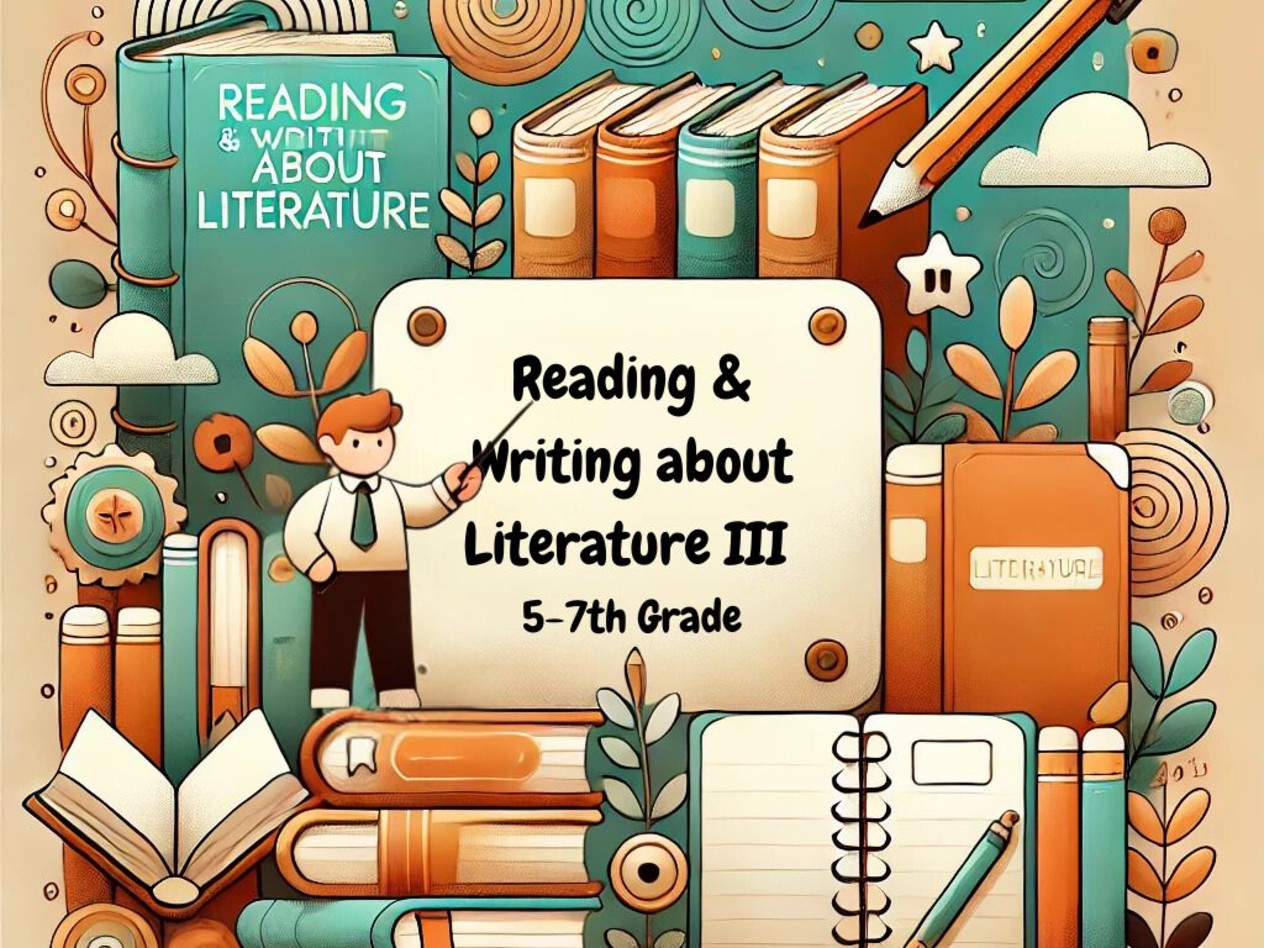
Reading and Writing about Literature III will pick up where its predecessor (Reading and Writing about Literature II) leaves off. That is, students will continue to build on their foundations in language fundamentals and the appreciation of literature and nonfiction. The format of the classroom meetings will remain the same, with students discussing the reading assignment as a group, followed by working together on a series of worksheets distributed the week before. Those worksheets will cover every major aspect of language to ensure that students will build the fundamental skills they need to become better writers. Of course, vocabulary will be emphasized every week, both in making distinctions among similar words (for example, in considering the difference in connotation between two words like disorganized and disagreeable), and in discerning the meanings of words in context (by identifying words within a full paragraph). The course will also continue to emphasize the differences between similarly sounding words (intervene and interfere, discreet and discrete, and so on). Students will be given series of sentences to form into full paragraphs; students will also continue to work on broader writing skills like paragraph organization, thesis formation, and comprehensive conclusions. Beyond that, they will be required to integrate source material into their written responses to the reading assignments. Finally, students will continue to concentrate on aspects of syntax, including parallel structure, passive voice, and sentence variety. All these points of focus will challenge students to build the fundamentals of strong analytical writing as well as the more sophisticated aspects of the writing process, elements that will encourage them to develop their own voice and sense of style. The reading assignments will continue as before, distributed a week before class to give students a chance to read them and respond in writing. The reading syllabus will include an even wider range of reading selections from the previous semester, a list that will include selections of short stories, nonfiction articles, and even some poetry. This past semester featured some very lively classroom discussions, so that will continue with students analyzing the reading for the opening twenty minutes of each class. This will give them a chance to present their ideas and arguments in the public forum, and respond to other points of view with which they may disagree. These sessions will also foster within students an appreciation for more sophisticated writing, and the importance of reading to gain a better understanding of oneself and the world. All writing assignments will receive individualized feedback from week to week.
Mr. Keating, with undergraduate degrees in English & History from Bucknell University and a master's in comparative literature from Columbia University, has been teaching English and writing since 1981 and has taught at the Pingry School for the past 34 years. His courses have featured a wide variety of authors, from Shakespeare to Salinger, but his all-time favorite book is The Great Gatsby. Mr. Keating’s teaching styles are working closely with his students on their writing & oral expression, and inspiring students to love literature and language. At Pingry, he has won numerous teaching awards and has had the entranceway of the school named in his honor. He is the recipient of Pingry’s Baldwin Citizen of the Year Award in June, 2023. A personal note, “I love book clubs, films, and traveling, and I am a competitive runner and cyclist. “
If you do not find the date/time you are looking for or have a question, click above button to contact the provider.
If cancellation one week before the program starts*: Eligible for 75% refund or receive 100% credit for future enrollment.
48 hours before first class: Eligible for 50% refund or receive 100% credit for future enrollment.
Between the first class and the third class: Eligible to receive 75% credit
After the third class: 0% refund
Absence: No makeup classes
* Robotics & programming classes have different deadlines
WeLight Education is an education company that offers online K-12 after-school enrichment services. Our outstanding and passionate teaching team is skilled at inspiring engaged and thoughtful students. Together, we nurture a love for life-long learning and the joy of ongoing success!
The courses WeLightEdu is offering include Elementary & Middle School levels English Reading & Writing classes, AP English, Competition Maths, Public Speaking, Presentation, Robotics, Scratch, Python, Chess, Gifted & Talented Programs, etc.
| Program Name | Grade | Age | Hightlight |
|---|---|---|---|
| AP Language & Composition English Exam Preparation Master Class | {{ '9th grade'.slice(0, -5) }} 9th grade ∼ 12th grade | 18+ {{ ''.slice(0, -3) }} ∼ 18+ {{ ''.slice(0, -3) }} | Students cultivate their understanding of writing and rhetorical arguments through reading, analyzing, and writing texts |
| Accelerated Reading and Writing - Part Two (Grades 8-11) | {{ '8th grade'.slice(0, -5) }} 8th grade ∼ 11th grade | 18+ {{ ''.slice(0, -3) }} ∼ 18+ {{ ''.slice(0, -3) }} | Accel R & W Part Two will focus on improving students’ critical reading skills and their ability to analyze literature. |
| Classic and Contemporary Literature (R & W for High School Grade 9-12) | {{ '9th grade'.slice(0, -5) }} 9th grade ∼ 12th grade | 18+ {{ ''.slice(0, -3) }} ∼ 18+ {{ ''.slice(0, -3) }} | Students will be taught persuasive and narrative writing strategies with a focus on writing academic essays. |
| Intermediate Reading & Writing, Spring 2025 (Grades 6-9) | {{ '6th grade'.slice(0, -5) }} 6th grade ∼ 9th grade | 18+ {{ ''.slice(0, -3) }} ∼ 18+ {{ ''.slice(0, -3) }} | Students will practice writing strategies and close reading skills to improve their argument writing & reading compreh. |
| Powers of Persuasion: A Writing and Reading Class (Grades 5-8) | {{ '5th grade'.slice(0, -5) }} 5th grade ∼ 8th grade | 18+ {{ ''.slice(0, -3) }} ∼ 18+ {{ ''.slice(0, -3) }} | Students will develop essential analytical and critical thinking skills as they learn to evaluate arguments. |
{{item.programName}}








